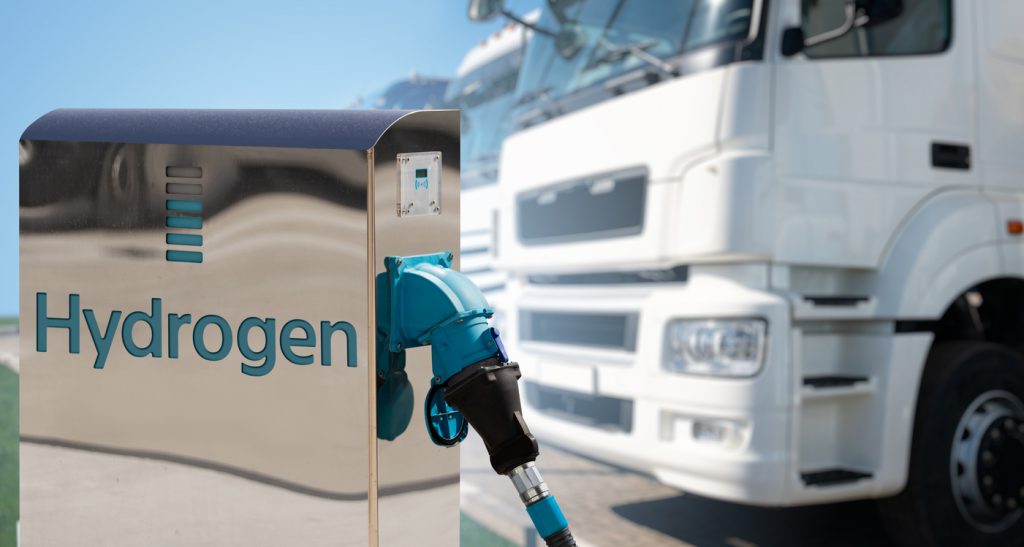- Zero emission vehicle range prediction specialists, Spark EV Technology, and AVL, one of the world’s leading mobility technology companies for development, simulation, and testing in the automotive industry, have signed a global agreement to research and develop electric fuel cell optimisation technologies, supported through startup programme, AVL Creators Expedition.
- The partnership will see the launch of a new, combined technology targeted at Fuel Cell Electric Vehicle (FCEV) manufacturers, initially in the commercial vehicle market, that could offer enhanced energy efficiency and reduced costs, helping the transition to zero emission vehicles.
- Leveraging Spark EV Technology’s market-leading patented energy and range prediction technology, alongside AVL’s patented FCEV control algorithms, the partnership aims to make FCEVs a more attractive proposition for commercial vehicle operators by optimising the operation of the fuel cell.
Fuel cell electric vehicles (FCEVs) could soon become a more viable option for fleets following a global collaboration agreement between zero emission energy and range management specialists, Spark EV Technology, and global engineering service partner, AVL.
Supported and funded through the AVL Creators Expedition programme, that facilitates AVL partnerships with emerging technology innovators, the significant partnership will see Spark EV Technology’s market leading energy prediction software, paired with AVL’s patented FCEV control algorithms to create the launch of a new product targeted initially at the commercial vehicle OEM market.
The hydrogen fuel market is expected to grow rapidly, reaching 10-15 million vehicles by 2030, including 500,000 trucks (Hydrogen Council). Tackling some of the key concerns around FCEVs, such as onboard energy storage, infrastructure, and cost, AVL and Spark will develop a unique FCEV energy management system. The new system will alleviate range anxiety by predicting the capability of the vehicle to undertake a journey.
The system also aims to improve the total cost of ownership, optimising the operation of the fuel cell, and presenting the opportunity to reduce hydrogen fuel consumption and battery size. Both combine to address fleet operator concerns about the viability of adding a FCEV to their fleets.
The partnership is a result of the AVL Creators Expedition, – a start-up initiative that invests in companies and projects that provide innovative technologies in electric mobility, autonomous driving, data driven innovation and artificial intelligence.
The new collaboration will bring together Spark EV Technology’s expertise in energy and range prediction technologies with AVL’s specialised development of complete powertrains (including internal combustion engines, transmissions, batteries, e-drives).
Justin Ott, CEO at Spark EV Technology hopes that the collaboration could put an end to industry concerns: “Hydrogen will play a critical role in the energy mix for commercial vehicles, but there is currently a lack of refuelling infrastructure and awareness as to whether a FCEV can manage typical duty cycles by fleets. Our plan is to offer a solution that can optimise the capability of FCEVs and eliminate range and refuelling anxieties by building trust in highly accurate, live range availability, and the optimisation of Hydrogen fuel consumption, helping more fleets transition faster and offering manufacturers a viable FCEV option.
“This is a landmark moment for the future of FCEVs. and we are delighted to be partnering with AVL to tackle these concerns. We look forward to developing and delivering options for the commercial vehicle market over the next years.”
Dominik Brunner, Lead Engineer at AVL: “We are proud to introduce an innovative approach to enhance fuel efficiency by optimizing fuel cell operation along specific routes. By selecting the right power source at the right part of the journey, our solution reduces energy consumption and emissions, marking a significant step toward greener and more cost-effective transportation. We are looking forward to seeing what comes from the partnership with Spark EV Technology and exploring how we can help more manufacturers make the transition to zero emission.”
